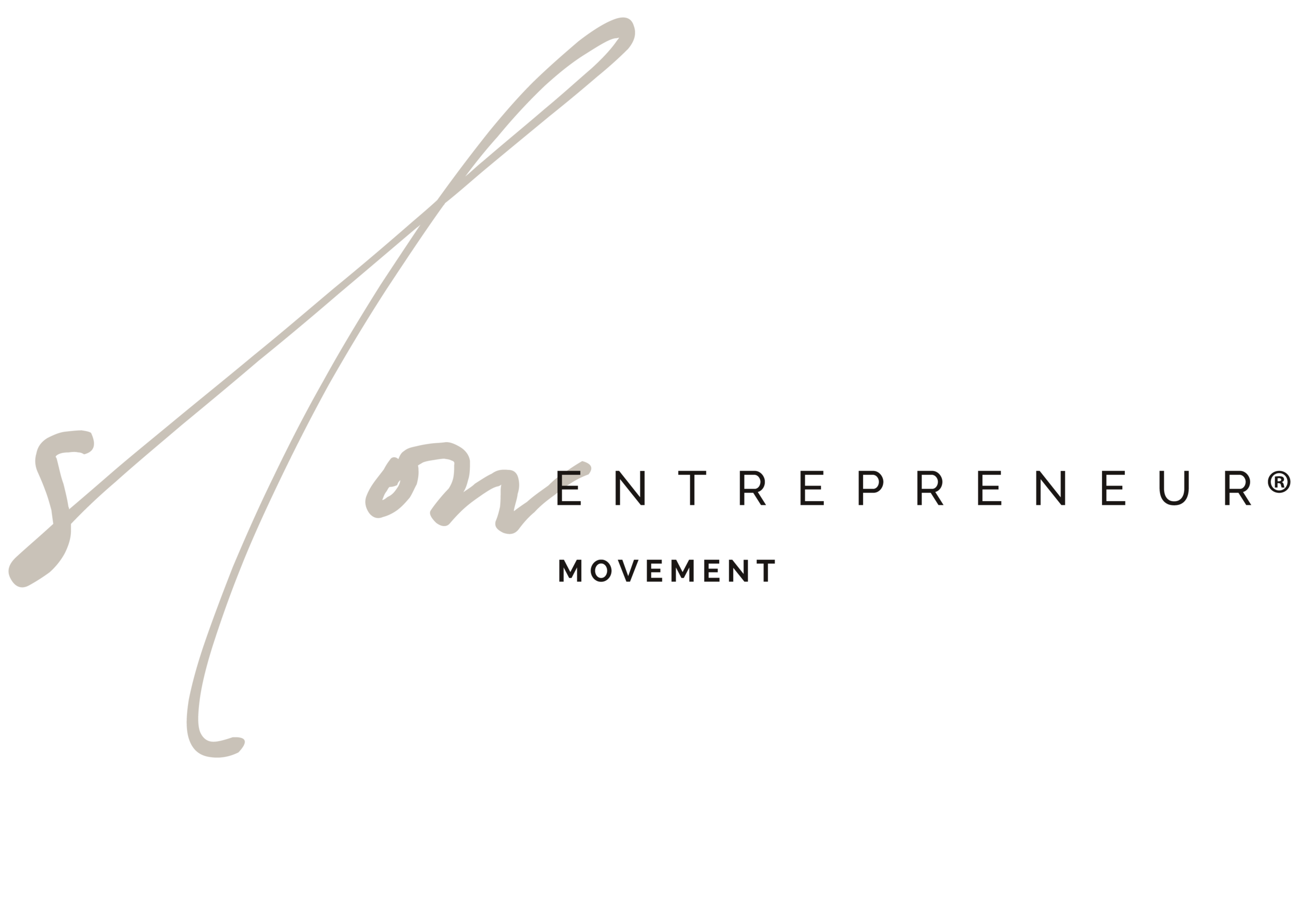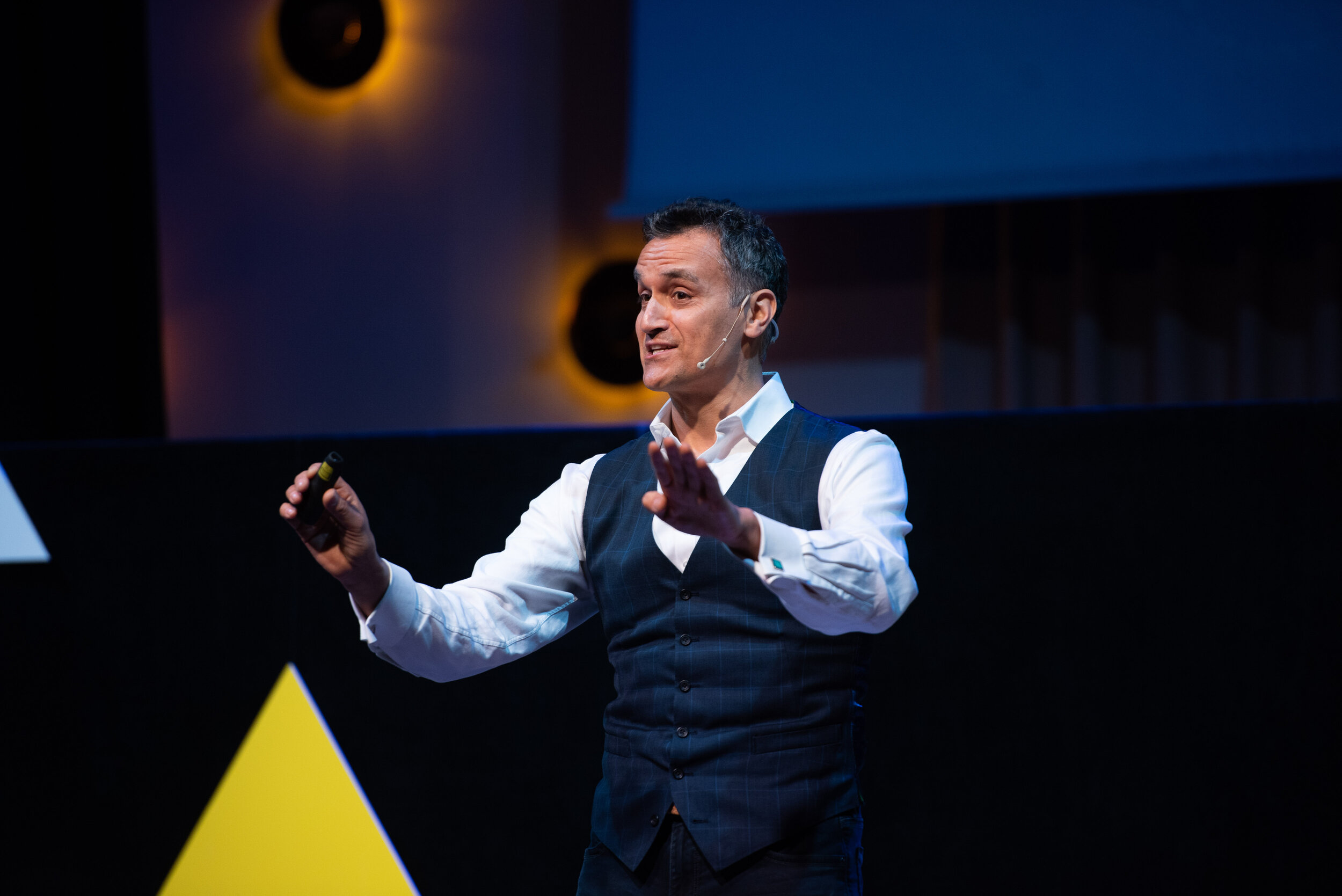Carl Honoré
An author and speaker’s perspective on finding balance between Fast and Slow, savoring moments that matter, and slowing down to reflect during global uncertainty.
Words: SARAH MAGIDOFF
Photograph (Above): TARA TAYLOR
AS AN AUTHOR AND SPEAKER, YOU TRAVEL AROUND THE GLOBE ADVOCATING FOR THE BENEFITS OF SLOWING DOWN. WHY IS THIS MESSAGE IMPORTANT TO YOU? WAS THERE A CRITICAL EVENT WHEN YOU REALIZED YOU NEEDED TO SLOW DOWN?
CH: Because the virus of hurry is bad for us all. When you get stuck in fast forward, you pay a price: You wear out your body and mind. You find it impossible to enjoy the moment. Your relationships suffer. You also make more mistakes and find it harder to think, create and work.
Many people accept they need to slow down only once their body gives up and they fall ill. My wake-up call came when I found myself speed reading bedtime stories to my son. My version of Snow White had just three dwarves in it! That's when I knew the time had come to start living my life instead of racing through it.
WHAT MISCONCEPTIONS DO PEOPLE HAVE ABOUT SLOWING DOWN? WHEN YOU USE THE TERMS FAST AND SLOW, WHAT ARE YOU REFERRING TO?
CH: The word "slow" is synonymous with lazy, stupid, unproductive, clumsy, boring. But none of that is true.
Rejecting the cult of speed and slowing down to your own pace will make you happier and healthier, more connected, dynamic and creative. It will unleash a better you.
But let's get one thing clear: I’m not a fanatic of slowness. I love speed! Faster is often better.
But not always. Sometimes slower is better. The key is to live every moment at the right speed.
To me, Slow with a capital S is a mindset. It means putting quality before quantity. Being mindful, present and in the moment. Savouring the minutes and seconds rather than counting them. Giving your time, energy and attention to things that really matter. It's about doing everything not as fast as possible but as well as possible.
IN WHAT WAYS IS IT DIFFICULT FOR YOU, PERSONALLY, TO SLOW DOWN? WHAT DISCIPLINES DO YOU OBSERVE TO ENSURE YOU MAINTAIN MARGIN IN YOUR LIFE?
CH: Every moment of my day used to be a race against the clock. Now I seldom feel rushed any more.
But there are two areas of life where my natural tendency to go too fast can still sometimes get the better of me: driving and eating. The difference now is that I'm aware of the danger – and able to jump in and slow back down again!
TALK ABOUT A TIME YOU CHOSE TO PRIORITIZE SOMETHING PERSONAL OR MEANINGFUL OVER THE DEMANDS OF WORK. HOW DID THAT DECISION IMPACT YOU?
CH: About 10 years ago, I turned down a lucrative speaking gig to attend my grandmother's funeral. At first I felt resentful about having to make the financial sacrifice. But that passed as soon as I met up with family and old friends. It was wonderful to share stories and feel so much love. I gave the remembrance speech and thoroughly enjoyed doing so.
I can recall so many things about that day. And yet I can't for the life of me remember anything about the gig that I turned down.
However much you think your work matters, the people you love matter more.
YOU ARGUE THAT BOTH FAST AND SLOW HAVE A PLACE IN OUR LIVES. IT’S A MATTER OF USING EACH SPEED WELL, AND THAT EACH PERSON SHOULD FIND THE BALANCE BETWEEN EACH THAT’S RIGHT FOR THEM. THIS IS CALLED TEMPO GIUSTO. WHAT DOES YOUR PERSONAL TEMPO GIUSTO LOOK LIKE?
CH: I do fewer things now but I do them better and enjoy them more. I am healthier and have more energy. At work, I am much more productive and creative. I also have time for those little moments that bring meaning and joy to life – reading to my children, sharing a glass of wine with a friend, pausing to gaze at a beautiful sunset. I just feel so much more alive now.
Because everyone has their own personal metronome, fast and slow mean different things to different people. Some look at my life and think it doesn't look very slow at all! What matters is how it feels to me. And to me it feels like the perfect mix of serenity and excitement: I go fast when speed is called for and slow down when it's not. Rather than worry about other people's pace, I live at my tempo whenever possible.
IN YOUR BOOK “IN PRAISE OF SLOW”, YOU SAY THAT PERFORMING A TASK IN A SLOW MANNER OFTEN YIELDS FASTER RESULTS. EXPLAIN THIS PHENOMENON.
CH: There is an old military saying: "Slow is smooth and smooth is fast." So often doing things quickly means doing them shoddily. You make mistakes, you go down dead ends, you have to circle back and put things right.
When you slow down and take the time to lay the groundwork and get your ducks in a row, you're able to act – when it comes time to act – with the speed and precision of a ninja.
I sometimes call this the delicious paradox of Slow: that by slowing down you not only get better results but often you get those results faster.
Bottom line: in a world addicted to speed, slowness is a superpower.
WE’RE ALL ABOUT WORKING SMARTER, NOT HARDER. WHAT SHORTCUT(S) OR HACKS HAVE YOU IMPLEMENTED THAT HELP YOU MANAGE YOUR ENERGY WELL, RECLAIM MORE OF YOUR TIME, AND REACH YOUR GOALS WITH EASE?
CH: I keep a Not To Do List and move as many things onto it as possible. I find glancing at old Not To Do Lists a reassuring reminder that a lot of stuff can actually be dropped without the world coming to an end.
I keep the notifications on my phone switched off at all times. I still receive every piece of incoming information but I choose when I receive it. Which makes me less distracted because I check email or catching up on the news when it suits me.
I build into my routine soothing activities, such as yoga, sketching and meditation, that vaccinate me against the virus of hurry.
HAVE YOU HAD TO MAKE ANY PROFESSIONAL SACRIFICES IN ORDER TO SLOW DOWN AND HAVE MORE FREE TIME?
CH: I would make more money if I worked more hours. But while some might see that as a sacrifice, I don't. To me, the aim is not to make as much money as you can. It's to live a happy, healthy and meaningful life.
Remember, no one ever looks back from their deathbed and says, "I wish I'd worked longer hours."
WHAT DOES “SLOW ENTREPRENEURSHIP” MEAN TO YOU?
CH: It means entrepreneurship that is creative, kind, healthy, sustainable, meaningful and pleasurable. It's good for the planet and of service to others. Slow entrepreneurship elevates rather than exhausts the entrepreneur.
WHAT IS YOUR NEXT ACT OF SLOW?
CH: Part of being Slow is accepting that you won't always have all the answers.
The pandemic has turned my life upside down so, like a lot of people, I feel the need to reinvent myself right now. But I'm not exactly sure how, and that's fine. Rather than try to rush my way out of this moment of uncertainty, I'm letting it wash over me and trying to learn from it. I'm taking lots of time to study, feel, daydream and reflect. For now, at least, that is my next act of Slow!
WHERE CAN WE FIND YOU?
Purchase Carl’s books, digital courses, and subscribe to The Slow Newsletter at: carlhonore.info
Carl is an award-winning author, two-time TED speaker and the voice of the Slow Movement. His bestselling books examine our compulsion to hurry and chronicle a global trend towards putting on the brakes. Carl has presented radio and TV programs on the benefits of slowing down. His latest book explores aging and ageism. He lives in London.





